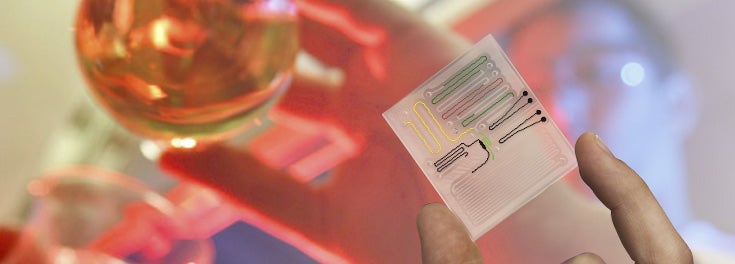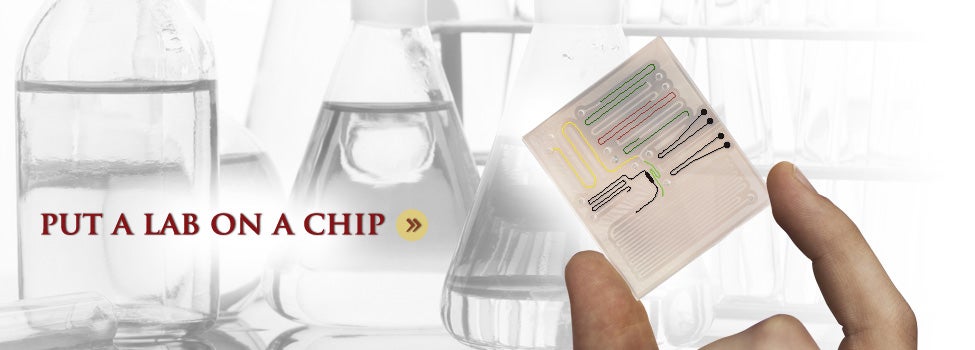
Need some blood work done? There might soon be an app for that.
A team of URI engineers and students has developed (and are patenting) an advanced blood-testing technology that incorporates a Smartphone application, hand-held biosensor and credit card-sized cartridge to provide rapid, accurate biological analysis and wireless communication of blood test results.
URI’s lab-on-a-chip research and technology could revolutionize pharmaceuticals, early detection of infections, and other health-related fields. That’s just the kind of stuff we like to do here.
“Today when you go to the lab to have a blood test, they take vials of liquid from you and you have to wait sometimes days to get the results,” said Mohammad Faghri, URI professor of mechanical engineering and the lead researcher on the project. “With our system, and just a drop of blood, you can have your blood tested when you walk into the doctor’s office and the results will be ready before you leave. Or you can do it at home and have the results sent to your doctor in real time.”
It’s the next step in an ongoing lab-on-a-chip project begun in 2005 by URI, in partnership with the Technical University of Braunschweig in Germany that has generated enthusiasm among many sectors of the health care industry. “This area of research has tremendous economic development potential for spin-off companies, patents, and workforce training,” Faghri said.
The technology has evolved since its conception in the form of several undergraduate, master’s, and doctoral projects, to a shoebox-size device for commercial application last year, to the current hand-held device with several additional capabilities.
“The Smartphone app turns the system on. Users place a drop of blood from a finger prick on a disposable plastic polymer cartridge and insert it into the hand-held biosensor. The blood travels through the cartridge in tiny channels to a detection site where it reacts with preloaded reagents that allow the sensor to detect certain biomarkers of disease. And then it sends the results securely back to your phone or to your doctor, all in about 20 minutes,” Faghri said.
The third generation of the device, currently in development, will put the entire lab on paper, eliminating the need for active pumping of blood and reagents through the cartridge.
URI is known for our interdisciplinary programs, and the lab-on-a-chip project is one of them. It brings students and faculty from several engineering disciplines, chemistry, physics, molecular biology, and even entomology. Funded by the National Science Foundation and Rhode Island Science & Technology Advisory Council, URI’s lab-on-a-chip research and technology could revolutionize pharmaceuticals, early detection of infections, and other health-related fields. That’s just the kind of stuff we like to do here.

